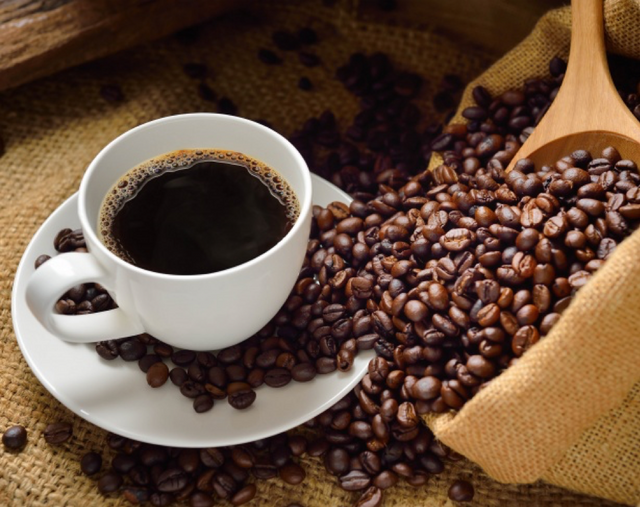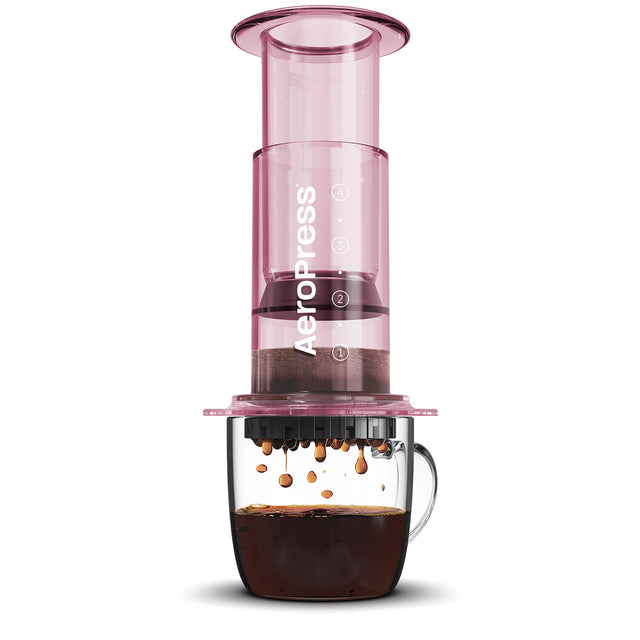Common Mistakes When Brewing Coffee and How to Avoid Them
Coffee is one of the most popular hot beverages in the world and is enjoyed by millions of people every single day. In fact, an estimated 2.25 billion cups of coffee will be consumed every day around the world. With so much coffee being made each and every day, it is no surprise that, occasionally, some brewing mistakes will be made. We take a look at some of the most common mistakes made when it comes to brewing coffee, and how you can avoid them to ensure that you are getting the best coffee quality possible.
Not Using Fresh Coffee
No one likes a cup of stale coffee that’s been left out all day, so why set your coffee up for bad tastes from the beginning? Using old coffee beans can leave your brew tasting disappointingly stale. Coffee beans need to be stored in the right conditions to keep fresh and flavourful and should be used up within two weeks to a month from their roasting date. If you use older coffee beans, you run the risk of the compounds responsible for providing that incredible coffee flavour dissipating, which can leave you with a bitter cupful.

Using Pre-Ground Coffee
Coffee beans hold gases and oils that make them more flavourful. When beans are ground, some of these gases and oils will be released, causing the beans to lose some of that delicious, fresh flavour. The longer the coffee is left, the less fresh it will taste. Pre-ground coffee is convenient, but think about how long it has sat on a shelf before reaching your cup. By the time it is being stirred into your brew, the rich coffee flavours will have been lost, leaving you with a dull drink. Get yourself a good quality coffee grinder and grind up your coffee beans as and when you need them for the best tasting brew.
As well as this, some coffee makers and methods will require your coffee to be ground in a particular way to best release the flavours and aromas of your beans. Some methods may require a much finer consistency, which your pre-ground beans might not offer.
Using Poor Quality Coffee
While finding a bargain may seem great, when it comes to coffee, it definitely pays to spend a little more. When it comes to cheap coffee, your bank balance may be happy, but your taste buds certainly won’t be! Of course, there are many budget-friendly beans out there that will produce an extremely satisfying sip – just watch out for those where a lower price tag means a lower quality.

Not Measuring Out the Coffee
You wouldn’t dump in a random amount of flour, eggs and sugar and expect a perfect cake to be created, so why think that a hastily poured in amount of coffee and water will result in the perfect cup of coffee? Sure, it will be drinkable, but it certainly won’t taste as good as it could. Properly measuring out the right amount of ground coffee and water is a sure way of making a truly incredible tasting cup. When using the AeroPress, you can simply use the coffee scoop that comes with the kit to measure out the perfect amount. If you’re a true coffee enthusiast and want to ensure that it is precisely accurate, then you can also use a kitchen scale to properly measure the right amounts.
Not Using the Right Brewing Method
For many people, they will stick to the same brewing method they know, day in, day out, without trying a different way of brewing coffee. An alternative method could be easier for you and produce much better tasting coffee. There are many types of coffee brewing out there, including drip coffee making, presses and pour over coffee makers. If you’re looking for something easy to use that can produce quality coffee, then AeroPress UK offers a simple and affordable coffee press that can quickly brew incredibly smooth and rich coffee.

Water is Too Hot or Too Cold
Like with not measuring out the coffee correctly, water temperature is also very important to get right. It is generally agreed that the ideal coffee brewing temperature is around 90 degrees Celsius. Too hot and you’ll burn the coffee, too cool and the flavours will not be extracted. You can use a kitchen thermometer to properly measure the temperature, or simply wait one minute after the kettle boils.
Not Using a Water Filter
Water direct from the tap will typically contain minerals and chemicals which may impact on its taste. As well as this, your water may also taste odd with a particular coffee depending on whether it is hard or soft. While you may not consider the impact your water has on your coffee, it can play a big part in the resulting taste and aromas present in your cup. As such, using a water filter or purifier can lessen the impact of these factors and produce a better tasting brew.
Are you guilty of any of these coffee mistakes? Let us know by leaving a comment!



0 Comments
There are no comments for this article. Be the first one to leave a message!